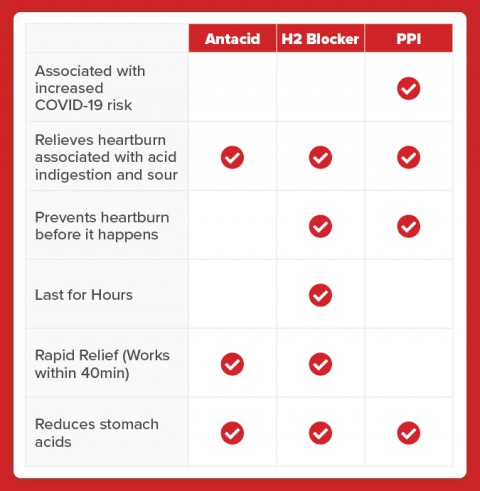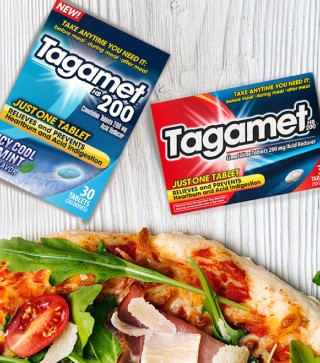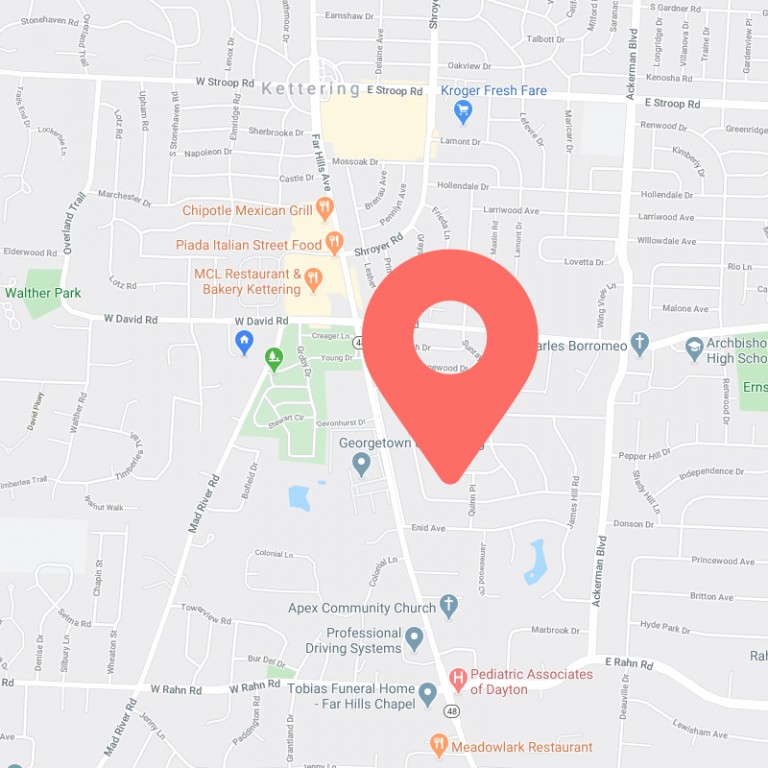
COVID-19 Infection Risk and Heartburn Medication

With so much news about COVID-19, it can be easy to miss important facts or misinterpret the many studies and claims being released. If you recently heard about a study led by scientists at Cedars-Sinai Medical Center and the University of Michigan regarding certain heartburn drugs potentially raising the risk of coronavirus infection, know that Tagamet® is NOT one of the heartburn medicines identified as a possible risk.
The researchers conducted a survey of over 86,000 people with gastrointestinal symptoms and found that respondents who said they used proton pump inhibitors (PPIs) to treat their heartburn or reflux were two to almost four times more likely to test positive for COVID-19 compared to people not using PPIs. It’s important to note this survey only shows a possible link between PPIs and the chance of catching COVID-19 - it does not conclude that taking PPIs will cause you to get COVID-19.
It is important to note that Tagamet® is not a PPI and was not linked to a higher risk for infection in the study.
How Is Tagamet® Different from a PPI?
Tagamet® is an H2 blocker—it works by temporarily blocking the histamine receptors located in stomach tissue. Activation of histamine receptors is just one of the signals that trigger acid production. The study found that people taking H2 blockers did not show a greater risk of infection.
In contrast, PPIs essentially turn off the gastric pump—or proton pump—that produces hydrochloric acid in the stomach. Even though a higher risk of COVID-19 was linked to PPIs, researchers still say the absolute risk is small and encouraged people to talk to their doctors if they had concerns.
Antacid, H2 Blocker, PPI—What’s the Difference?
Consumers have choices when they need heartburn relief, but sometimes those choices can be confusing. Let us clear things up for you by showing you the differences between antacids, H2 blockers, and PPIs, so you can make an informed decision the next time you need relief.
Antacids work by neutralizing existing stomach acids and start working right away. However, they do not stop your stomach from making more acid, so relief might only last from 20 to 30 minutes per dose.
H2 blockers block the histamine receptors that trigger acid production and lower the amount of acid your stomach produces. It may be 15 to 40 minutes before you feel relief, but that relief can last for hours.
PPIs actually shut down the pump that releases acid into your stomach and are not intended for immediate relief. You have to take the recommended dose every day for optimal results, so may take from one to four days to become fully effective.
Here are some other differences between antacids, H2 blockers and PPIs:

Talk to your doctor about which option would be best for your symptoms or condition.
Tagamet® Is a Safe Choice for Heartburn Relief
Tagamet® delivers fast-acting and safe relief of heartburn. Unlike antacids or over-the-counter PPIs, Tagamet® is approved to prevent heartburn and also relieves and prevents acid indigestion and sour stomach. As an H2 blocker, Tagamet® temporarily reduces the amount of acid being produced in your stomach. It is not linked with an increased risk of COVID-19, plus it contains cimetidine instead of ranitidine, so it is FDA-approved as a safe alternative to Zantac.


